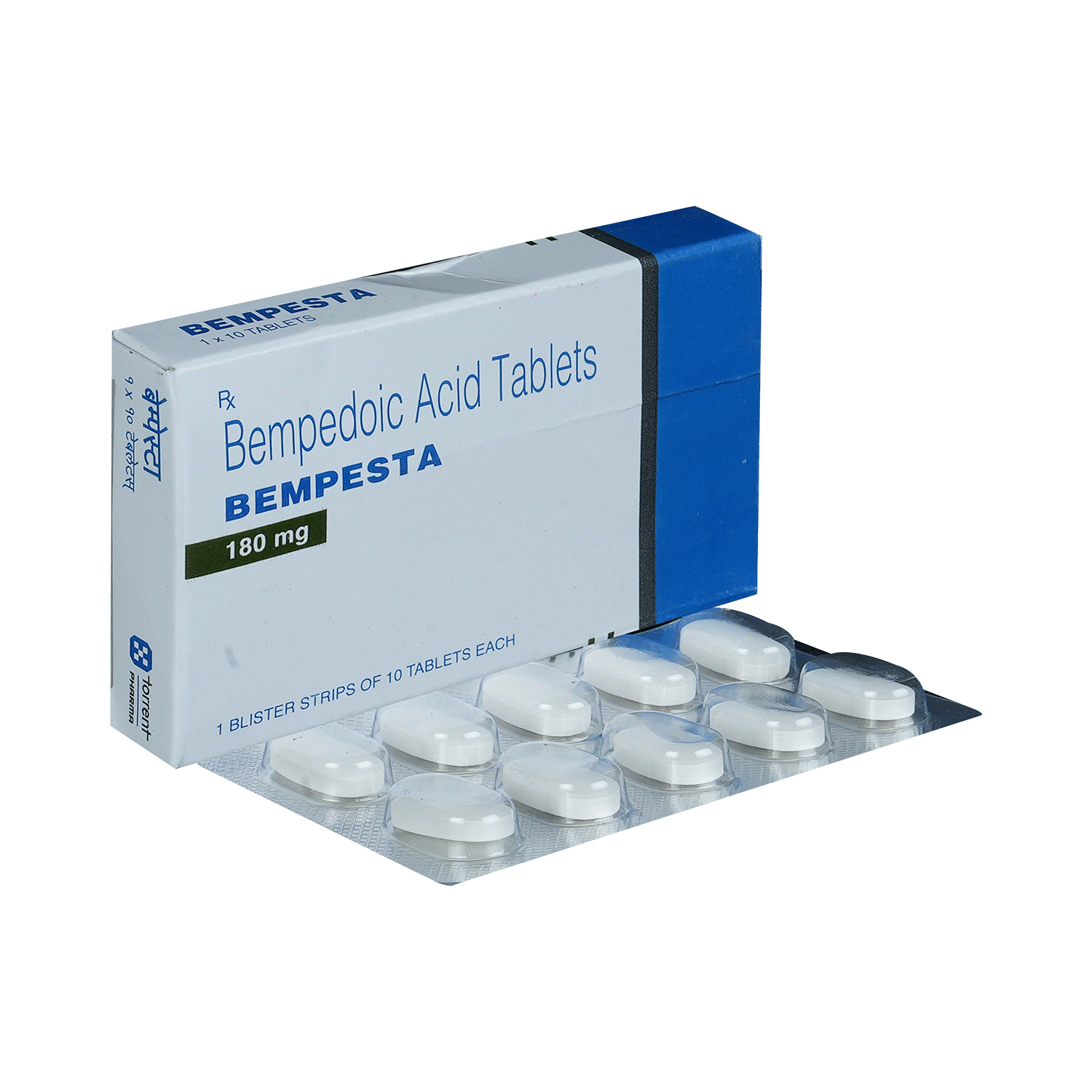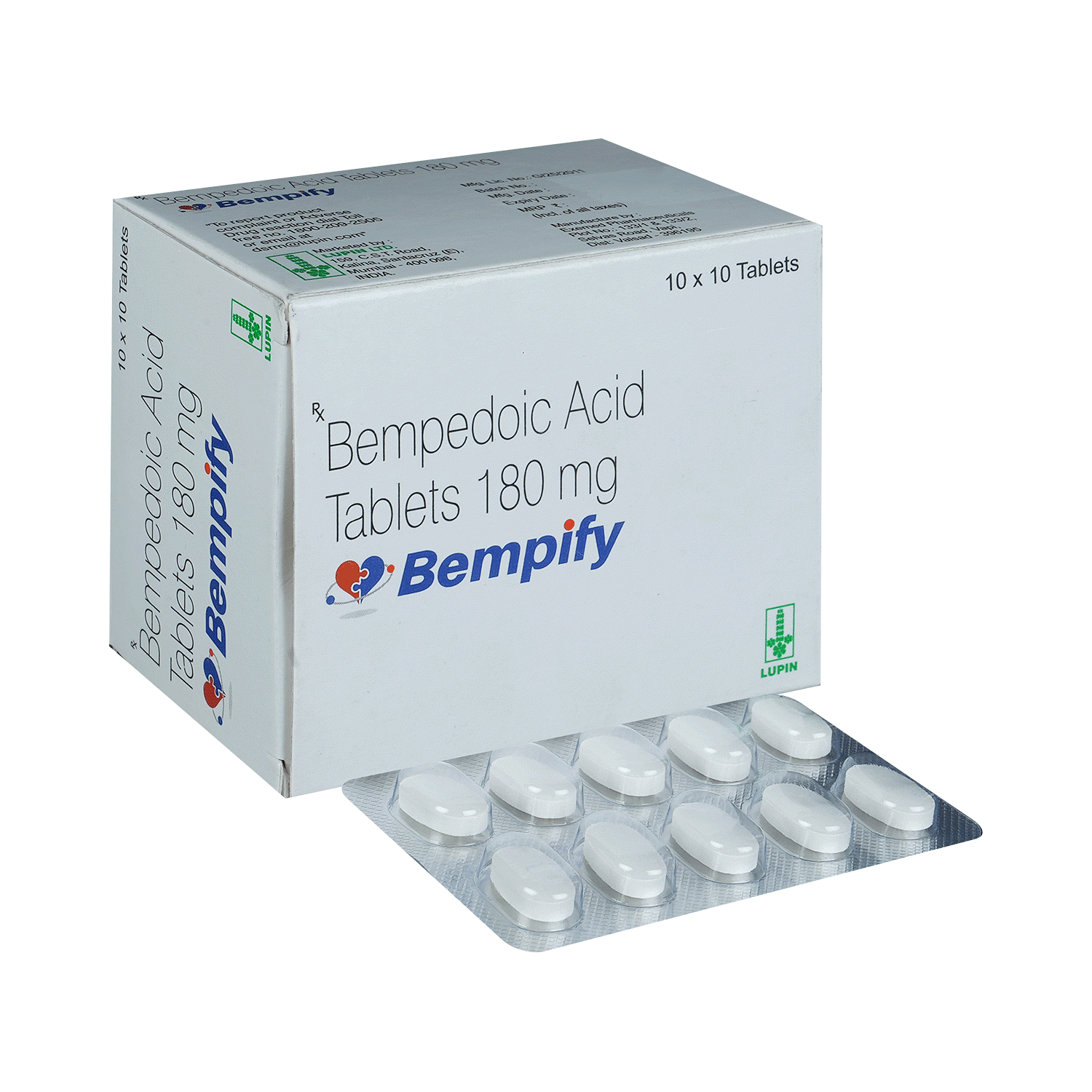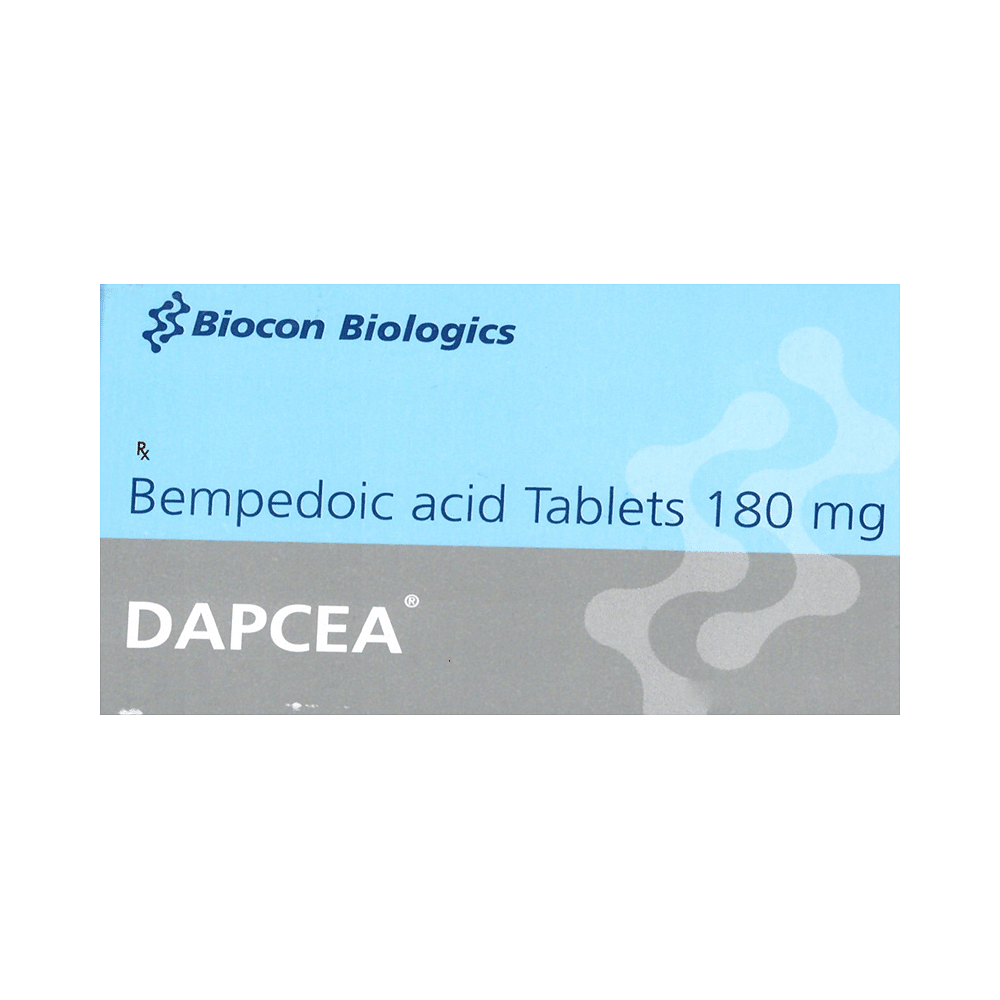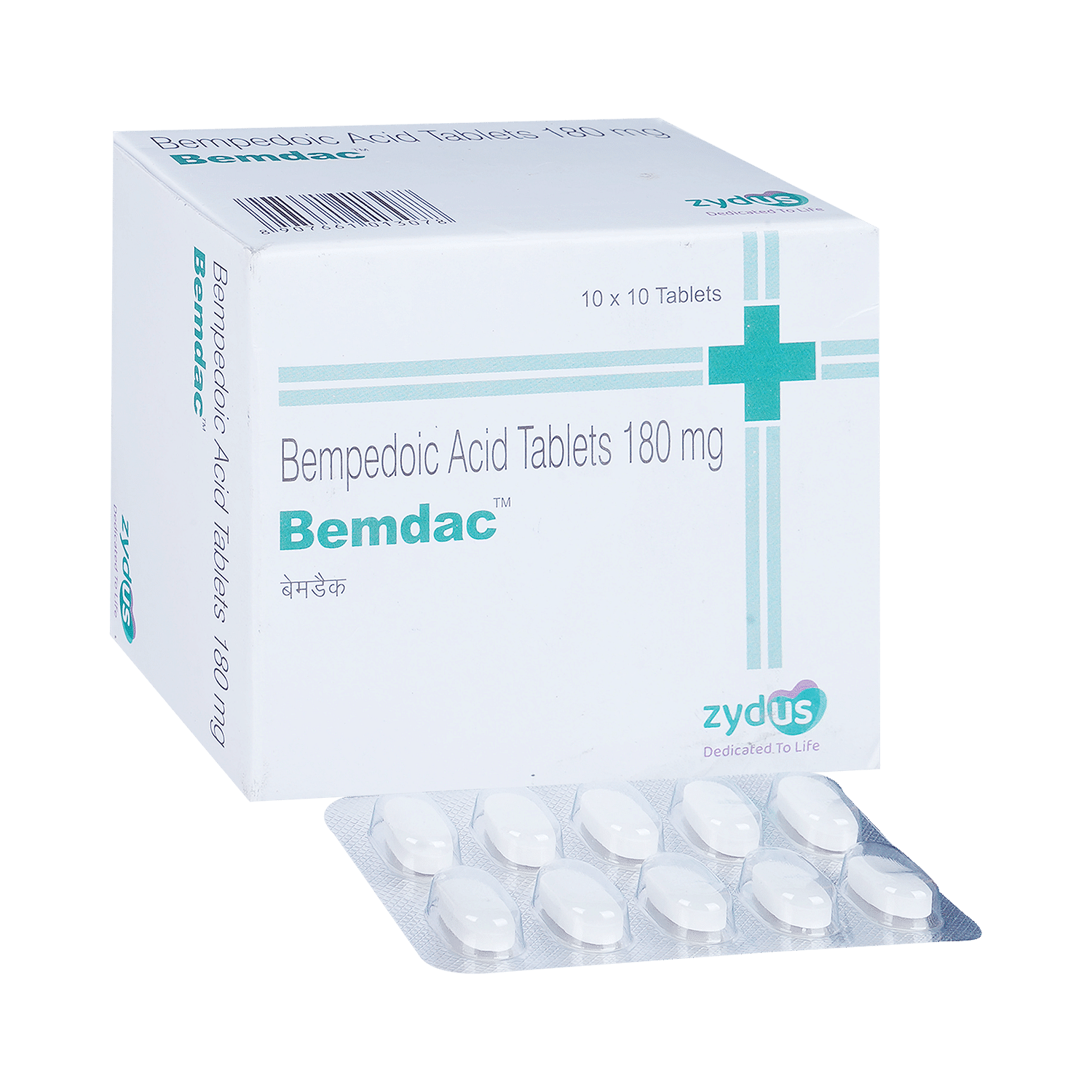
Bepofly Tablet
Manufacturer
Glenmark Pharmaceuticals Ltd
Salt Composition
Bempedoic Acid (180mg)
Key Information
Short Description
Bepofly 180mg Tablet is used to lower cholesterol and reduce the risk of heart disease.
Dosage Form
Tablet
Introduction
Bepofly 180mg Tablet is used to lower cholesterol and reduce the risk of heart disease. Cholesterol is a fatty substance that builds up in your blood vessels and causes narrowing, possibly leading to a heart attack or stroke.
Directions for Use
Take this medicine in the dose and duration as advised by your doctor. Swallow it as a whole. Do not chew, crush or break it..Bepofly 180mg Tablet may be taken with or without food, but it is better to take it at a fixed time.
How it works
Bepofly 180mg Tablet works by blocking an enzyme (enzyme adenosine triphosphate-citrate lyase) that is required to make “bad” cholesterol (low-density lipoprotein) in the liver, which results in lower levels of ‘bad’ cholesterol.
Quick Tips
Take Bepofly 180mg Tablet after a meal or with a snack to avoid gastrointestinal problems. Inform your doctor if you experience fatigue, muscle weakness, or muscle or joint pain. Your doctor may check your liver function before starting the treatment and regularly thereafter. Inform them if you notice signs of liver problems such as stomach pain, unusually dark urine, yellowing skin, or eyes. Lifestyle changes like a low-fat and salt diet, exercise, not smoking, and cutting down on the amount of alcohol you normally drink may help this medication work better.
Related Medicines

Bempesta Tablet

Bemdiff

Bem PD 180mg Tablet

Belro 180mg Tablet

Xapcea 180mg Tablet

Bempify Tablet 180mg

Dapcea Tablet

Bempuless 180mg Tablet

Bemdac 180mg Tablet

Emabia 180mg Tablet
Frequently asked questions
How long does it take for Bepofly 180mg Tablet to be effective?
In clinical studies, Bepofly 180mg Tablet has been shown to reduce cholesterol levels by 17-28% after 12 weeks.
Can Bepofly 180mg Tablet cause tiredness?
Tiredness and fatigue are possible side effects of this medication. If you experience tiredness along with chest pain or rapid heartbeat, contact your doctor immediately, as these symptoms could indicate an emergency.
Does Bepofly 180mg Tablet affect the liver?
Bepofly 180mg Tablet can cause liver enzyme elevations in some individuals, although liver damage is rare. In most cases, liver enzyme levels return to normal or improve with continued therapy or after discontinuing treatment.
In what situations will my doctor not prescribe Bepofly 180mg Tablet?
Your doctor may not prescribe this medication if you have a history of tendon rupture. Tendon rupture is a potential side effect, and your risk increases with age (60 years or older) or kidney failure.
How should I take Bepofly 180mg Tablet?
Take one tablet once daily with or without food for as long as prescribed by your doctor. Always follow your doctor's instructions when taking this medication.
What is LDL or bad cholesterol?
LDL, or low-density lipoprotein, is called 'bad' cholesterol because it contributes to the buildup of cholesterol in the blood, leading to artery blockage and increased risk of heart attacks, strokes, and peripheral artery disease.
What is HDL or good cholesterol?
HDL, or high-density lipoprotein, is referred to as 'good' cholesterol because it helps remove excess cholesterol from the blood by carrying it to the liver for removal, reducing heart disease risk.
How can I check my cholesterol level?
Schedule a lipid profile test with an accredited laboratory. This test measures total cholesterol, LDL levels, HDL levels, triglycerides, and the ratio between cholesterol and HDL. You may need to fast for 10-12 hours before giving your blood sample.
What is the normal cholesterol level in a blood test?
Your total cholesterol should be between 125 to 200 mg/dL, LDL levels should be less than 100 mg/dL, and HDL levels should be 40 mg/dL or higher.
What will happen if I have high cholesterol?
High cholesterol can cause arteries to narrow, reducing blood flow to the heart. This may lead to a heart attack or stroke.
How can lifestyle changes improve the effectiveness of Bepofly 180mg Tablet?
In addition to taking this medication, adopting a low-fat diet, exercising regularly, losing weight, and limiting alcohol consumption can help improve its effectiveness and lower cholesterol levels.


